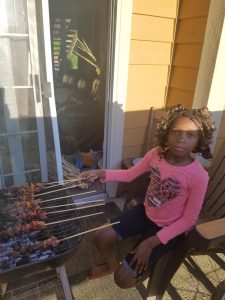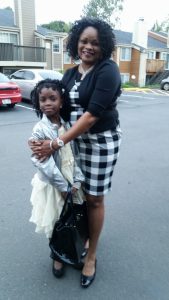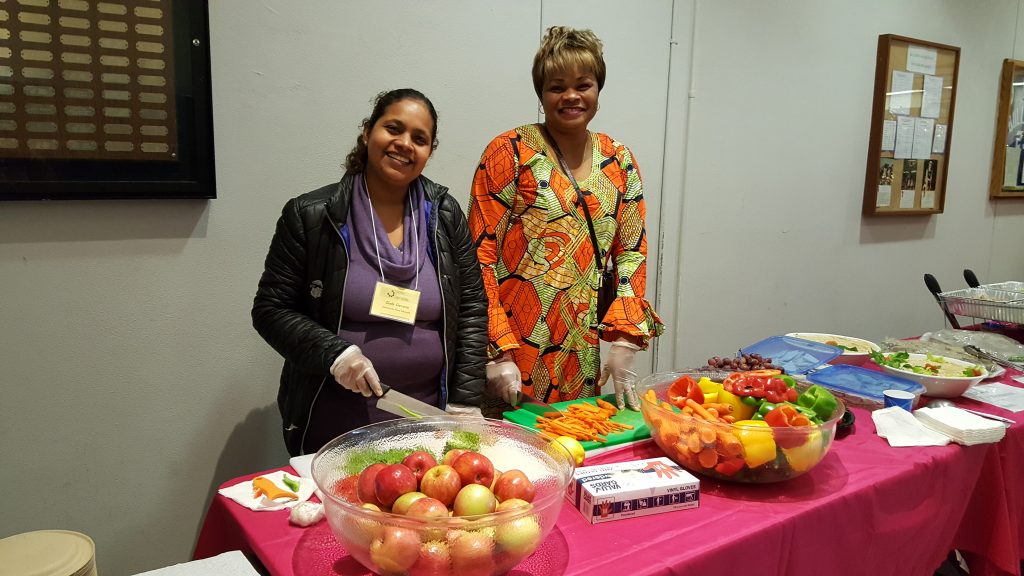Two days after arriving in the US, Madeleine Kabena found herself in an emergency room with her five-year-old daughter, Aline. Despite how it sounds, this was exactly why Madeleine and her family applied for the Diversity Visa lottery that allowed them to immigrate. They came here to find treatment for Aline, who was born with a genetic disorder. Although her health problem doesn’t have a cure, regular treatments can vastly improve both symptoms and outlook. At home in the Congo, treatment was limited and the threat of malaria loomed daily.

Madeleine’s daughter
While Madeleine brought her family here so her daughter could have a better life, it hasn’t all been easy. At first, it was a high to be in the United States but then reality began to sink in. There were the usual things, like learning a new language, but also some deeper issues. Food at the hospital was not good and she wasn’t finding traditional foods in her neighborhood. In the Congo, there are more than 200 cultures and what connects them all is the belief in good food. It is even thought that some disease can be healed through a healthy and nourishing diet. In fact, this is what Madeleine believes allowed her daughter to survive so long without regular treatments.
“Luckily I found that Chinese and Hispanic produce is very similar to Congolese. I shop there for vegetables like cassava, okra, and greens.”

Madeleine with her daughter
By searching for culturally appropriate foods, Madeleine discovered a distinct lack of Congolese shops, restaurants, or even organizations in King County. In all her asking around for connections to food, she eventually met a Congolese man who called himself a ‘Community Food Advocate.’ Madeleine was intrigued and hopeful. Over the first few years in the US, she worked as a caregiver at Wesley Homes. Her first profession was as a lawyer but her degree didn’t permit her to practice in the US. Becoming an advocate with FIN allowed her to represent people again while also building food connections for her community.
“Unlike what I see in the Latino and Somali communities, the Congolese community here is small and very spread out. We sometimes struggle to connect with each other.”
Madeleine’s hopes for the Congolese community in King County are the same as her hopes for her own family. In her own words… “I want people to have the best chance at life. And for us, that starts with things like healthcare and jobs but always ends with food and family.”

